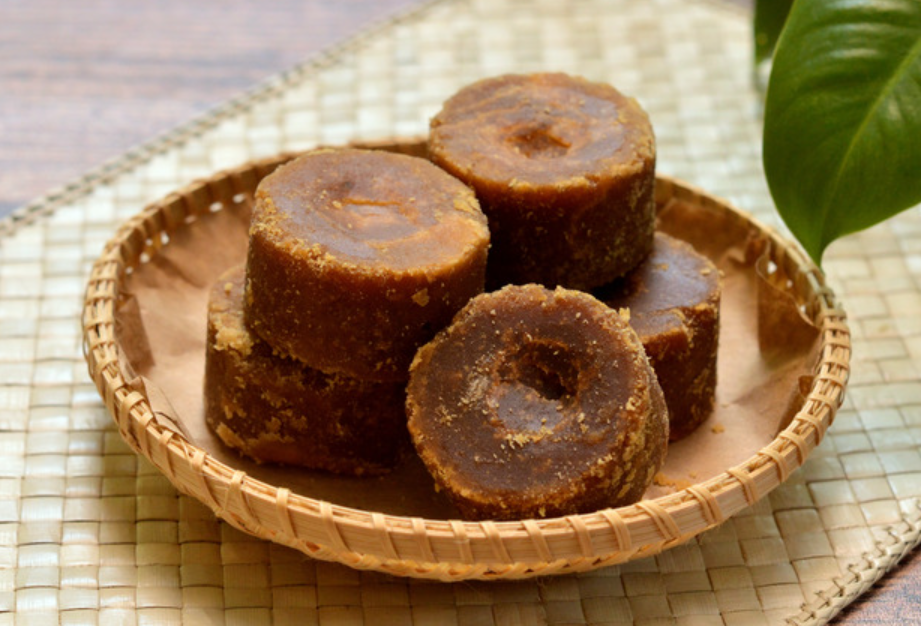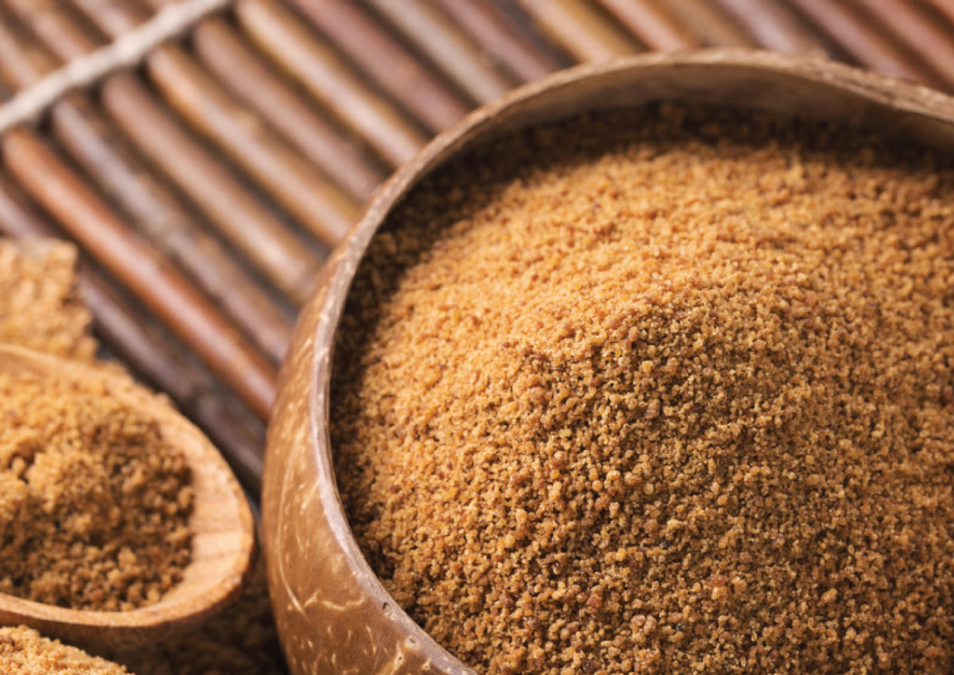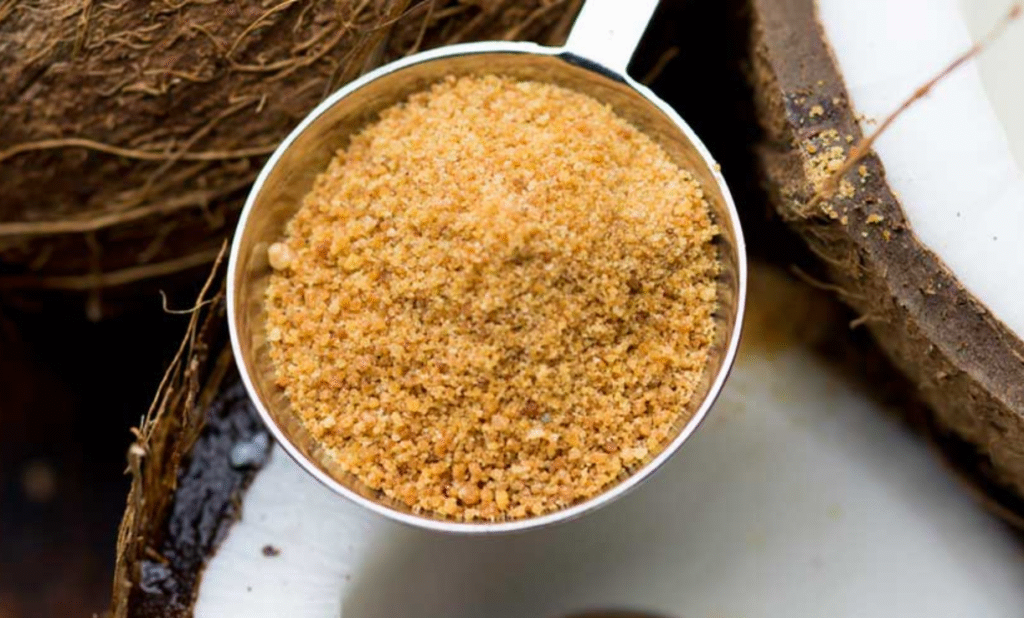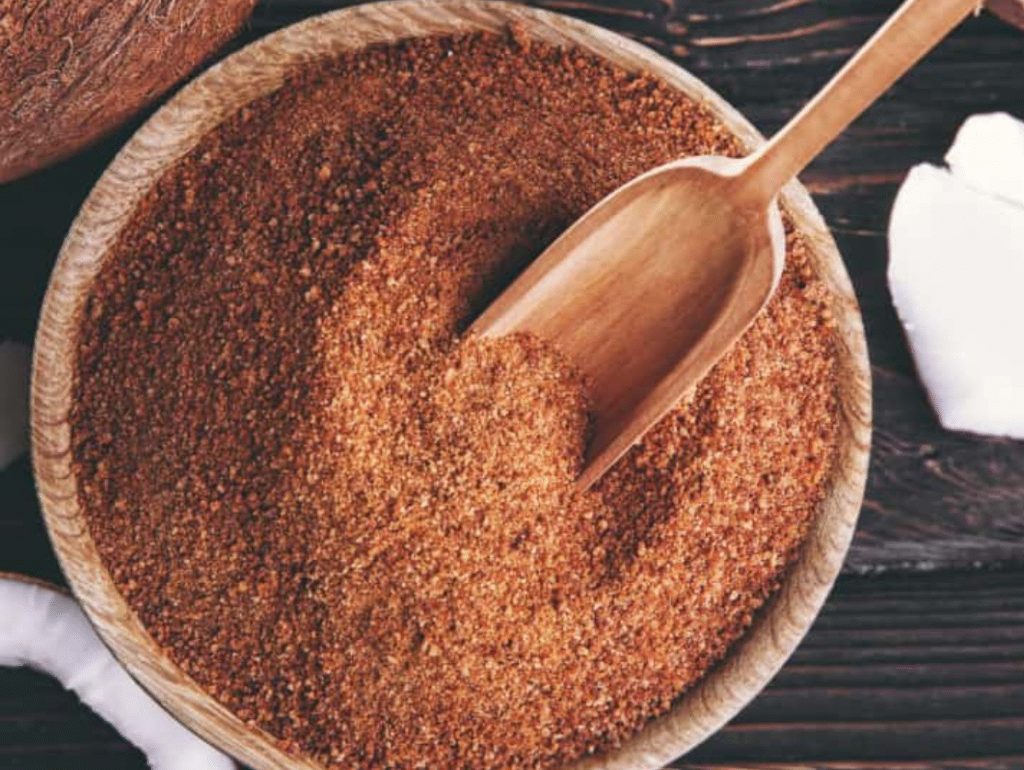Table of Contents
Are you looking for a natural sweetener that’s healthy, delicious and can be an excellent addition to your pantry? Coconut sugar and palm sugar are two of the most popular options that come with lots of health benefits. But what is the difference between coconut sugar vs palm sugar, and which one should you choose?
In this definitive guide we’ll explore how these two very similar sugars compare in terms of flavor, nutrition facts, sustainability and also provide recipes tips as well. Prepare to arm yourself with all the facts so that you make an informed decision about which sugar fits best into your life!
What is Palm Sugar?

Palm sugar is a type of sugar that is made from the sap of various varieties of palm trees, including coconut, date and palmyra. It has a slightly caramel-like flavor and rich color, with some varieties being much darker than others.
Palm sugar is often seen as a healthier alternative to refined white sugar because it contains trace amounts of minerals like calcium, potassium, iron and zinc. It also has an incredibly low glycemic index (GI) which can be beneficial for people who struggle with blood sugar control or diabetes.
What is Coconut Sugar?

Coconut sugar is derived from the sap of coconut palms and has a similar nutritional profile to palm sugar. However, it does have a few key differences in terms of taste, texture and color. It has a slightly milder flavor than palm sugar and a lighter color, ranging from light-brown to golden-yellow.
Nutrition Information
Nutrient Content
Coconut sugar and palm sugar have similar nutrient content. Both of them provide small amounts of vitamins and minerals, including iron, magnesium, phosphorus, potassium and zinc. However, it is important to note that the amount of micronutrients present in each type of sugar may vary depending on the variety used.
Calories & Carbohydrates
Both coconut sugar and palm sugar provide around 15 calories per teaspoon, which is slightly more than regular white sugar (4 calories per teaspoon). They also contain similar amounts of carbohydrates, with a single teaspoon containing 4 grams of carbohydrates.
Sustainability
When it comes to sustainability, both coconut sugar and palm sugar are much better choices than refined white sugar. Coconut palms require less water and fewer chemical inputs than regular sugar cane, so they have a much smaller environmental footprint. Palm sugar production also protects local ecosystems by preventing deforestation and preserving natural habitats for wildlife.

Glycemic Index
The glycemic index (GI) of coconut sugar and palm sugar is much lower than that of white sugar, which makes them suitable for people with diabetes or blood sugar control issues. Coconut sugar has a GI of 35, while palm sugar has a GI of 54. In comparison, regular white cane sugar has a GI of 68.
Taste Profile Comparisons
Although coconut sugar and palm sugar have similar nutrient profiles, they do differ slightly in terms of taste. Coconut sugar has a milder, more caramel-like flavor while palm sugar tends to be slightly sweeter and richer.
Recipes Tips
When it comes to baking or cooking with either coconut sugar or palm sugar, there are a few key tips that can help you get the most out of them.
First, keep in mind that both sugars may require some additional liquid when used for baking as they tend to absorb moisture from the environment. Secondly, if you want a deeper flavor or darker color in your recipes then using both coconut and palm sugars can provide an interesting mix of flavors and colors. Lastly, make sure to adjust the sweetness levels based on preference as both sugars are slightly sweeter than regular white sugar.
Benefits and Drawbacks

Both coconut sugar and palm sugar have their own unique benefits and drawbacks. While both of them are healthier alternatives to white refined cane sugar, they do still contain a significant amount of calories per serving which is something that should be taken into consideration when considering either one. Additionally, while they are much lower on the glycemic index than regular white sugar, they still may cause a spike in blood glucose levels for people who suffer from diabetes or blood sugar control issues.
Which One Is Healthier?
Ultimately, both coconut sugar and palm sugar are healthier choices than regular white cane sugar. They contain fewer calories, have a lower glycemic index, and are generally more sustainable. However, it is important to keep in mind that they still contain some natural sugars which may cause a spike in blood glucose levels for those who are sensitive to dietary sugar intake. Therefore, it is best to consult a healthcare professional before incorporating either one into your diet.
Other Considerations
When choosing whether to use coconut sugar or palm sugar, there are a few other things to consider as well. For instance, some people may prefer the milder flavor of coconut sugar while others may enjoy the richer sweetness of palm sugar. Additionally, it is important to keep in mind that not all brands of coconut and palm sugars are created equal so be sure to read labels carefully before purchasing.
Frequently Asked Questions | Palm Sugar vs Coconut Sugar
1. Are there any health benefits of consuming palm sugar or coconut sugar?
Both palm sugar and coconut sugar can be used as natural sweeteners in place of refined sugars, which offer no nutritional benefit and have been linked to health risks such as obesity, heart disease, and type 2 diabetes. Additionally, both types are lower on the glycemic index than white table sugars, meaning they break down slower when consumed and do not cause rapid spikes in blood glucose levels.
2. How does palm sugar compare to other sweeteners such as agave nectar or honey?
Palm sugar is generally considered to be healthier than other sweeteners like agave nectar or honey, as it has a lower glycemic index rating and contains more vitamins and minerals than its counterparts. Additionally, its flavor profile is more complex which makes it desirable for many recipes.
3. How do I use palm sugar or coconut sugar in my recipes?
Palm sugar and coconut sugar can be used in place of regular white table sugar in baking recipes, desserts, smoothies, teas, or coffees. Since both are considered natural sweeteners with low glycemic index ratings, they are better choices for those watching their blood glucose levels or living with diabetes. Additionally, both sugars offer unique flavor profiles to enhance the flavors of your dishes – palm sugar has hints of caramel and butterscotch while coconut sugar offers smoky and nutty notes.
4. Are there any health risks associated with consuming palm sugar or coconut sugar?
Consuming too much of either type of sugar can be detrimental to your overall health, as excess consumption of added sugars is linked to obesity, heart disease, and type 2 diabetes. It’s important to stay within the recommended daily limits for added sugars and practice moderation when it comes to incorporating natural sweeteners like palm sugar and coconut sugar into your diet. Additionally, those who are diabetic should also monitor their blood glucose levels closely when consuming either type of sugar.
Final Thoughts
When it comes to making healthier decisions about sugar consumption, both coconut sugar and palm sugar are great alternatives to white refined cane sugar. They both provide similar amounts of nutrients while also having a much lower glycemic index. However, it is important to keep in mind that they still contain calories and may cause a spike in blood glucose levels for some people. Ultimately the choice between coconut or palm sugars will come down to personal preference and which type best suits your recipes and dietary needs.
Read more at Ohsnap Cupcakes!